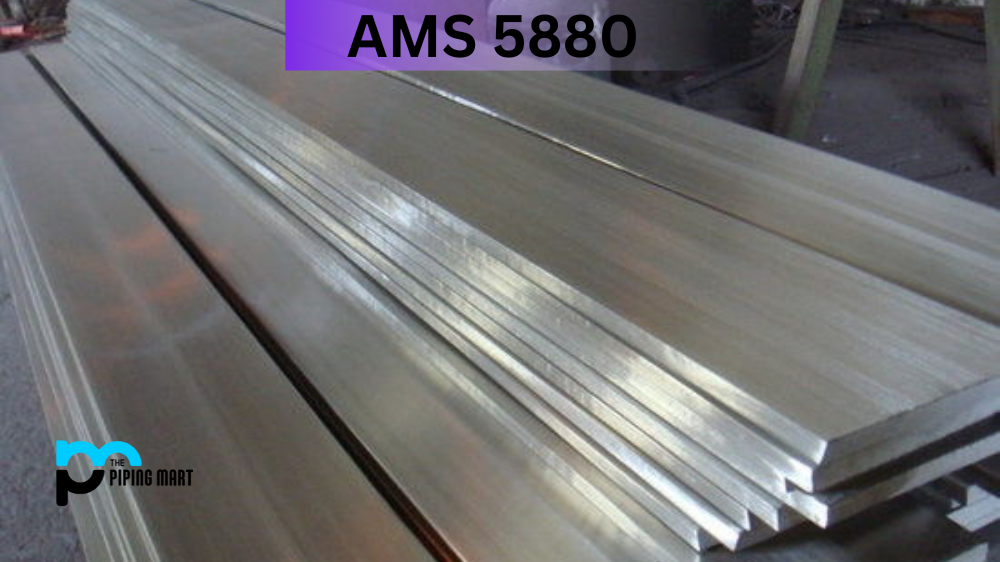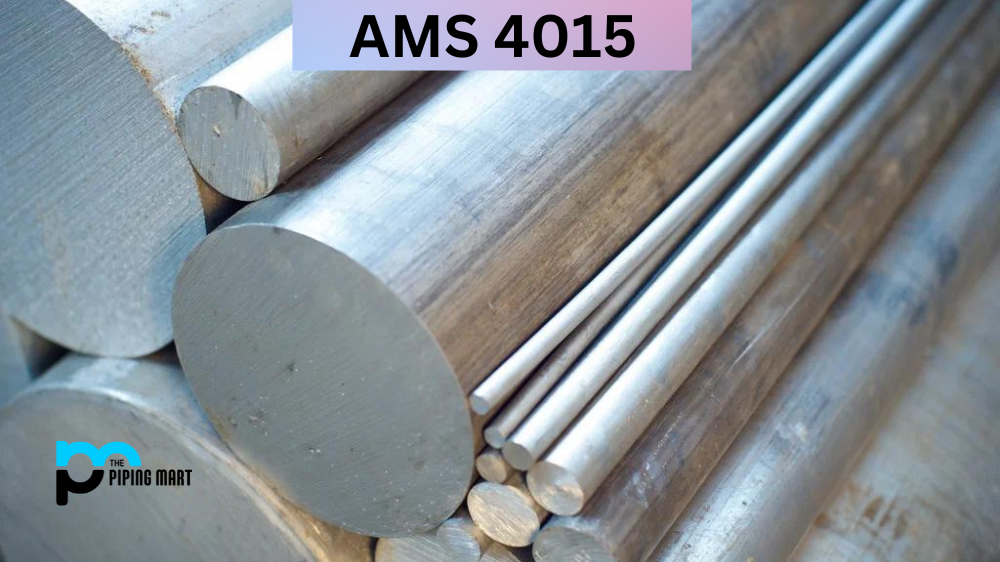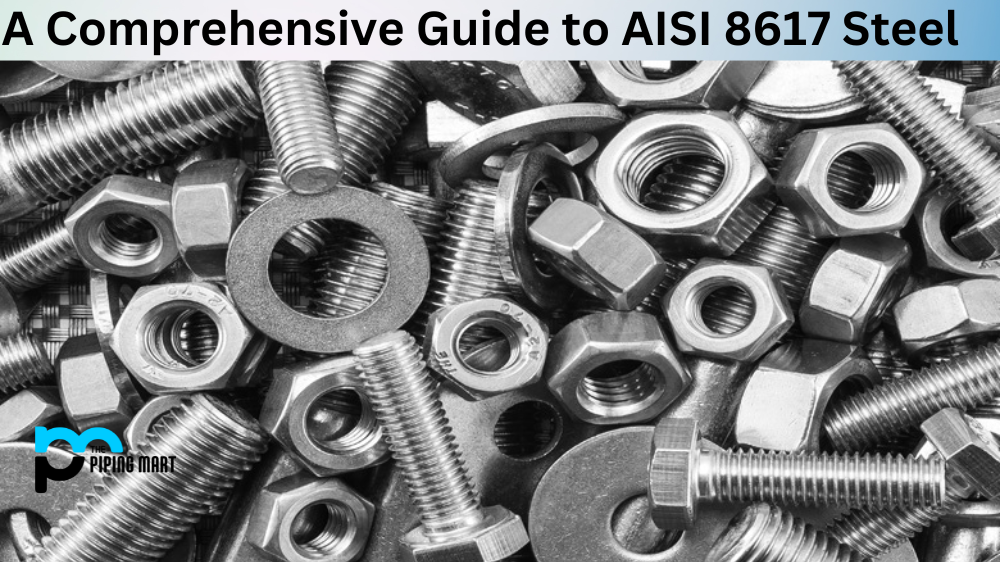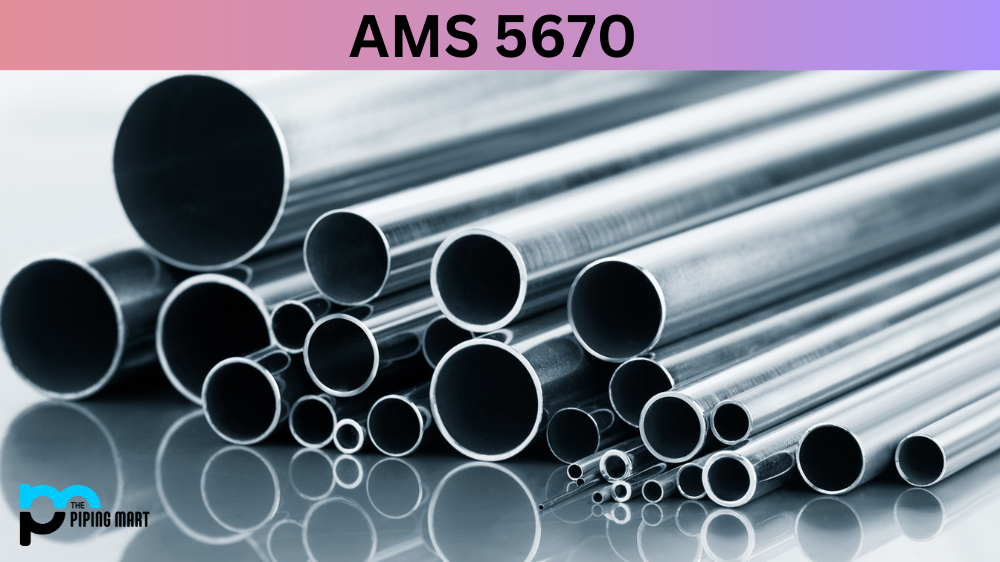If you are involved in the manufacturing industry, specifically in producing aerospace equipment and components, then you have probably heard about AMS 5880. This alloy is widely used in aerospace applications due to its high strength, good fatigue, and excellent corrosion resistance. In this blog post, we will discuss the properties and uses of AMS 5880, its composition, hardness, and heat treatment.
What is AMS 5880?
AMS 5880 (also known as 440C Stainless Steel)is a high-performance nickel alloy manufactured to meet rigorous aerospace industry standards. With its outstanding mechanical properties, this material is highly resistant to corrosion, erosion and has excellent wear resistance. It is widely used in components such as turbine disks, engine blades, and landing gear fittings, where strength and durability are key. However, its advantages extend to other critical components, such as medical devices and the automotive industry. AMS5880 is an excellent choice for applications that require reliable and consistent performance, even in extremely harsh environments. Its versatility and dependability make it the preferred choice for many industries, and its exceptional engineering properties make it a superior choice for a wide range of applications.
What Form is AMS 5880 Available at Piping Mart?
- Nut
- Bar
- Bolt
- Pipe
- Screw
- Tubing
- Valves
- Washers
- Flanges
- Fasteners
- Electrodes
- Stud Bolts
- Sheet Plates
- Round Pipes
- Sheet Pipes
- Pipe Fittings
- Forged Fitting
- ERW Pipes
- Stud Bolts
AMS 5880 Composition
AMS 5880 pis a high-strength alloy composed of 61% nickel, 15.5% chromium, 5.5% molybdenum, 3% titanium, 1.5% cobalt, 1% aluminium, 0.06% carbon, 0.2% manganese, and the rest being iron. The high nickel content gives the alloy exceptional corrosion resistance, while the chromium and molybdenum improve its strength and wear resistance. Titanium, cobalt, and aluminium improve the alloy’s high-temperature performance.
| Grade | C | Mn | Si | P | S | Cr | Mo | Ni | N | |
|---|---|---|---|---|---|---|---|---|---|---|
| AMS 5880 | min. max. |
0.95 1.20 |
– 1 |
– 1 |
– 0.04 |
– 0.030 |
16.00 18.00 |
– 0.75 |
– | – |
AMS 5880 Physical Properties
AMS 5880 has a specific gravity of 8.13 and a melting point of around 1370°C (2498°F). The alloy maintains its mechanical and physical properties over a wide range of temperatures, from cryogenic temperatures of -253°C (-423°F) to high temperatures of up to 815°C (1500°F). It exhibits excellent resistance to stress-corrosion cracking and good resistance to chloride-ion stress-corrosion cracking.
| Grade | Density (kg/m3) | Elastic Modulus (GPa) | Mean Coefficient of Thermal Expansion (mm/m/°C) | Thermal Conductivity(W/m.K) | Specific Heat 0-100°C (J/kg.K) | Electrical Resistivity (nW.m) | |||
|---|---|---|---|---|---|---|---|---|---|
| 0-100°C | 0-200°C | 0-600°C | at 100°C | at 500°C | |||||
| AMS 5880 | 7650 | 200 | 10.1 | 10.3 | 11.7 | 24.2 | – | 460 | 600 |
AMS 5880 Mechanical Properties
AMS 5880 has excellent mechanical properties, including high tensile strength, yield strength, and elongation. Its tensile strength can reach up to 1930 MPa (280 ksi), with a yield strength of 1725 MPa (250 ksi) and an elongation of 10%. The alloy also boasts good fatigue resistance, with an endurance limit of around 720 MPa (104 ksi) at room temperature.
| Tempering Temperature (°C) | Tensile Strength (MPa) | Yield Strength 0.2% Proof (MPa) | Elongation (% in 50mm) | Hardness Rockwell (HR C) | Impact Charpy V (J) |
|---|---|---|---|---|---|
| Annealed* | 758 | 448 | 14 | 269HB max# | – |
| 204 | 2030 | 1900 | 4 | 59 | 9 |
| 260 | 1960 | 1830 | 4 | 57 | 9 |
| 316 | 1860 | 1740 | 4 | 56 | 9 |
| 371 | 1790 | 1660 | 4 |
AMS 5880 Equivalents
- AMS 5618
- AMS 5630
- AMS 5880
- ASTM A276
- ASTM A314
- ASTM A473
- ASTM A493
- ASTM A580
- DIN 1.4125
- QQ S763
- MIL-S-862
- SAE 51440C
- SAE J405 (51440C)
AMS 5880 Uses
Due to its excellent strength, corrosion resistance, and high-temperature capabilities, AMS 5880 is commonly used in aerospace applications, specifically in manufacturing gas turbines, jet engines, and aircraft structural components. The alloy also produces rocket engines, landing gear components, and various high-performance equipment.
AMS 5880 Specifications
- AMS 5630,
- AMS-QQS-763
- ASTM A276
- ASTM F899
AMS 5880 Hardness
The hardness of AMS 5880 varies depending on the heat treatment applied, with values ranging from 32-37 HRC in the annealed condition up to 45-50 HRC when thoroughly heat treated. Several methods can harden the alloy, including cold working, solid-solution heat treatment, precipitation heat treatment, and ageing. Heat treatment also improves the alloy’s strength, flexibility, and toughness.
AMS 5880 Heat treatment
Heat treatment is crucial in improving the properties of AMS 5880. After being forged or machined, the alloy can be annealed to improve its elasticity, reduce internal stresses, and improve its machinability. The alloy can also be thermally processed using a combination of solid-solution heat treatment, precipitation heat treatment, and ageing to achieve the desired strength, hardness, and toughness levels.
AMS 5880 Density
The AMS 5880 Density is vital when measuring the density of liquids and gases. This cutting-edge technology has proven highly accurate and reliable, making it an essential tool for various professionals across various industries. The AMS 5880 Density has been carefully engineered to deliver precise readings in even the most challenging conditions, ensuring that measurements are always dependable. Its advanced features and performance capabilities have made it a favourite among scientists, engineers, and technicians who rely on accurate data to make critical decisions. With the AMS 5880 Density, you can be confident that you have access to the most accurate and reliable density measuring technology available today.
Conclusion:
AMS 5880 is a high-performance alloy with excellent strength, corrosion resistance, and high-temperature capabilities. It has several applications in the aerospace industry, including gas turbines, jet engines, and aircraft structural components. Its composition, physical and mechanical properties make it an ideal material for high-performance equipment. Successfully hardening and heat-treating the alloy requires expertise and precision, making it even more desirable in the aerospace industry. AMS 5880 has become a crucial material in the aerospace manufacturing sector, and it’s no surprise why.





